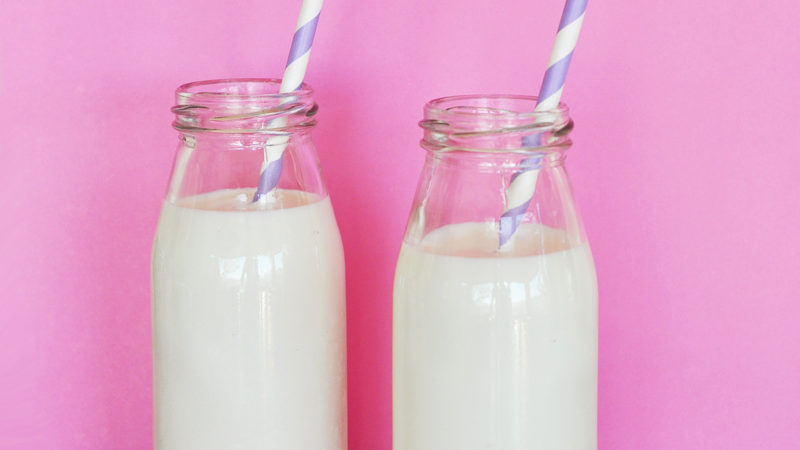Everything You Need To Know About ‘Watermelon’

The human body can not even survive without water and other nutrients. And watermelon holds 92 percent of water in it. With each bite of this refreshing fruit, you will get lots of water and essential vitamins. Watermelon not only provides us water but it has two of the most important compound which are lycopene and citrulline. This juicy fruit has lots of benefits other than providing us water like it has very low calories. It also provides us healthy sugar like watermelon sugar. According to a report of the academy of nutrition and dietetics watermelon is one of the best sources of lycopene and other essential nutrients with water. They later added that watermelon calories are considered as healthy calories because they are very few and consumed with lots of water.
Now you must have several questions in your mind like how many calories does watermelon have, what all benefits and nutrients do watermelons contain etc. Do not worry, In this article, we will comprehensively understand the benefits of watermelon and talk about a detailed study about watermelon calories.
Important nutrients in watermelon
According to scientists watermelon has 92 percent of water and 7.5 percent of carbs in it. It has a negligible amount of protein and fat. Watermelon is very low in calories. If we take 100 grams of fresh and raw watermelon then we will get only 30 calories, the negligible amount of protein and fat ( 0.1 grams), carbohydrates, sugar, and fiber.
Carbs In Watermelon
Watermelon is not a huge source of carbs but it contains 13 grams of carbs per cup (160 grams). Watermelon carbs are mostly found as simple sugars like sucrose, glucose, and fructose. According to the glycemic index (which measures the time of increasing blood sugar levels after meals), it’s GI ranges from 72-80, which is considered as a very high number. This is the reason why diabetic patients are not allowed to eat watermelons on a daily basis. However, they can eat one cup of watermelon in a week as it does not contain a very high amount of carbs.
Fibers In Watermelon
Watermelon does not contain a high amount of fiber as it is a very poor source of fiber. It only provides 0.4 grams of fiber in a sample of 100 grams. Fibers in watermelon are mainly found in the form of fructose. However, watermelon is considered very high in FODMAPs because of its fructose content. According to studies eating a higher amount of watermelon can result in digestive problems in some individuals. This is why doctors do not allow eating a high amount of watermelon to those who have low digestion power.
Vitamins And Minerals In Watermelon
As we discussed earlier, that watermelon is a very good source of essential vitamins like vitamins C, A, and B5.
Vitamin C – this is an antioxidant that is essential for skin health and it also improves the immunity functions.
Potassium – potassium has some great usage as it is important for maintaining blood pressure and your heart health.
Copper – copper is a very common mineral in plant foods and it is a very essential substance for the human body.
Vitamin B5 – This vitamin is also known as pantothenic acid and it is found in in all foods.
Vitamin A – watermelon does not contain direct vitamin A in it. It contains beta carotene which converts into vitamin A with the help of metabolic reactions.
Other plant compounds in watermelon
Watermelon is not a good source of antioxidants if we compare it with other fruits. However, it has a lot of amino acid citrulline and the antioxidant lycopene. Both plant compounds are very beneficial for human health.
Citrulline
Watermelon is one of the richest sources of citrulline among all other amino acid fruits. The white rind of watermelon has the highest amount of Citrulline. With the help of metabolic reactions, citrulline breaks into arginine which is a very essential amino acid.
Citrulline and arginine both help in the synthesis of nitric oxide which is helpful for lowering down the blood pressure as it dilates and relaxes your blood vessels. Arginine improves the health of many organs like kidneys, liver, lungs, and reproductive and immune systems. During some scientific studies, it is found that arginine also helps in wound healing.
Although we consider that watermelon is the best source of citrulline, one would have to consume at least 2.3 kg of watermelon to meet the daily needs of arginine for the body.
Lycopene
Watermelon is considered as one of the best and fresh sources of plant compound lycopene. lycopene is a very powerful antioxidant that is mainly responsible for the red color of watermelon.
Fun fact – tomatoes have less lycopene than watermelons.
Many scientific studies have shown that if you drink fresh watermelon juice daily then it increases the blood level of beta carotene and lycopene. Our body converts lycopene to form beta carotene and then beta carotene converts into vitamin A.
Health Benefits Of Watermelons
Lowers Blood Pressure
High blood pressure is a very common problem nowadays and leads us to chronic diseases.
Watermelon has a huge amount of Citrulline. And in the human body citrulline converts into arginine. So Citrulline and arginine both help in the synthesis of nitric oxide which is helpful for lowering down the blood pressure as it diabetes and relaxes your blood vessels.
A regular dose of watermelon or its juice may help you to reduce the High blood pressure in your arteries and reduce the risk of any heart diseases.
Reduced Insulin Resistance
Insulin is a very important hormone for your body because it controlls the sugar levels in the human body. And insulin resistance is the stage when your body becomes resistant to the insulin effect. Which leads to high blood sugar levels.
According to several scientific studies, watermelon and arginine help to reduce insulin resistance in the human body.
Reduces Muscle Soreness After Exercise
Muscle soreness is a very famous problem for those people who excercise a lot. One scientific study has shown that watermelon juice reduces muscle soreness after workout although some of the scientists do not agree with this point.
Adverse Effect
Usually, watermelon is loved by everyone but in some individuals, it may cause adverse effects like allergy and indigestion.
Allergy
It is very rare to know that someone is allergic to watermelon but in some individuals, watermelon may cause oral allergy because of pollen sensitivity. The symptoms of this might be itchiness in the mouth or swelling in the throat, lip, or ears.
FODMAPs
Watermelon is full of fructose which is a type of FODMAP. Some individuals feel difficulty in digestion of FODMAPs. These types of FODMAP may cause indigestion, stomach ache, constipation, and diarrhea. Doctors suggest not to eat watermelon to those who have irritable bowel syndrome.
Final Words
Watermelon is a very healthy fruit. It is full of benefits like lots of water, lycopene, Citrulline, and whatnot. Lycopene and citrulline are very helpful for decreasing blood levels, muscle soreness, and increasing metabolism. And in the end, it is extremely delicious food that one will never deny. The majority of people love it because of its taste as well as health benefits. If you loved reading this article then please comment your feedback in the comment section below.




